Monica Vornbrock and Melissa Chapman - A Different Approach to Marketing - PODCAST TRANSCRIPTION
September 20, 2023 at 4:07 p.m.Editor's note: The following is the transcript of a live interview with Melissa Chapman and Monica Vornbrock from The GLO Group. You can read the interview below or listen to the podcast.
Into/Outro: Welcome to Roofing Road Trips with Heidi. Explore the roofing industry through the eyes of a long-term professional within the trade. Listen for insights, interviews, and exciting news in the roofing industry today.
Heidi J. Ellsworth: Hello and welcome to another Roofing Road Trips from Roofers Coffee Shop. My name is Heidi Ellsworth and we're here for a very special podcast today. I have the honor of inviting Monica Vornbrock and Melissa Chapman to visit with me today. We have worked together for so long in the roofing industry and they have an amazing company, The GLO Group, that we get to talk about today. Ladies, welcome to the show.
Melissa Chapman: Thank you.
Monica Vornbrock: Thank you.
Melissa Chapman: Excited to be here. Thanks so much, Heidi.
Heidi J. Ellsworth: I know. Oh, I'm excited to talk about this. One of my favorite topics, favorite people. This is really fun. So let's start out with some introductions. So Melissa, why don't you start, introduction. Tell us a little bit about you and your history in roofing.
Melissa Chapman: Sure. My name is Melissa Chapman. I am co-founder of The GLO Group and I have been in the roofing industry longer than I care to admit, but several decades. Anyway. And I have kind of worked in multiple capacities within the industry, but mostly in business development and marketing and I'm so grateful to be part of this industry because it's been such an amazing experience for me. Amazing career, wonderful people, great friends. Yeah. It's been awesome.
Heidi J. Ellsworth: The best people. The best friends. I agree. I think about our history and the companies we worked together at or kind of worked with each other in different ways. It's been so much fun. And now to hear about this great company is very exciting. And Monica, same thing. You and I have worked together, have done a lot. So introduce yourself and tell us a little bit about your history.
Monica Vornbrock: Sure. Well thank you for having us, Heidi. Yeah. So I'm Monica Vornbrock and I am the other founder of The GLO Group. So I landed into roofing, kind of like all of us. And I came from advertising and started working with manufacturing about 15 years ago now. And that's actually how I met Melissa. And yeah. It's such a great industry. I can't echo what Melissa said enough.
Heidi J. Ellsworth: I know. Best friends. It doesn't seem like when you're actually at home, you're kind of like, "Oh. All my friends are across the country." It's so nice.
Monica Vornbrock: Totally.
Heidi J. Ellsworth: I know. So, okay. Let's talk about The GLO Group. So inspirational. Such an inspiration to think of. So let's start out. Monica, tell us about The GLO Group and the history of it.
Monica Vornbrock: Sure. So The GLO Group is a full service brand engagement firm and Melissa and I started the company in 2021 and it is a result of many years of love towards marketing and towards communication and creating connections. So it's a project of love. Absolutely. We started it because we realized that there was a need in the market. A lot of our customers were investing in all these different marketing tactics, getting all these leads, but their internal team wasn't in sync. So we realized, "Huh. Well, why not look from the inside out and see what it is that we can do to help these companies have more engaged teams and teams that communicate better," amongst many other things that we do.
Heidi J. Ellsworth: Yeah. And grow the business.
Monica Vornbrock: Yes.
Heidi J. Ellsworth: 'Cause all those things grow the business. Melissa, such great inspiration on this. Tell us a little bit about what really inspired both you and Monica to start The GLO Group.
Melissa Chapman: We have a long history, Monica and I. We probably talk more to each other than our spouses, but what we realized was that a lot of our clients, as Monica alluded to, were spending quite a significant amount of money on marketing outreach, trying to connect with their customers or prospects. So we would create these amazing campaigns and initiate a lot of programs and what was happening is that when the leads came in, not every company, but often enough that we recognized a pattern. Unfortunately, the infrastructure within the organization was structured in such a way that they could not really act on those opportunities that we were providing to them.
So what was happening is because these organizations were operating in such a siloed way, departments didn't talk to one another. There was no maybe universal way to communicate across the company regarding customers that it was really impacting their business in a very negative way. So as Monica said, what we decided was, "Okay." So we look at marketing as a conversation and you send out a message in hopes to inspire action.
Heidi J. Ellsworth: Right.
Melissa Chapman: And so it's the same thing internally in terms of the organization is trying to send a message to inspire action from its employees so that everyone's aligned. And that's what we help them do.
Heidi J. Ellsworth: I think it's brilliant. I just think about the companies I've worked for, that we've worked together in, and how many times was it just out of sync? You put all this work into a program and sales and marketing weren't talking or customer service and marketing weren't talking or customer service and sales weren't talking and don't even go into operations. And so I think really starting there, I loved what you said Monica about inside out. I love that anyway. I think that's such a great way to look at things. So let's talk a little bit about some of that transformation that you've seen in the last years since 2021 when you started. What are some of the transformational changes you've seen in clients? Just some examples to give people things. So Monica, let's start with you.
Monica Vornbrock: Sure. So some of the things that we've noticed is once an organization is focused on their culture, so they're culture centered around employee growth and developing connections, that translates into more engaged team members, into more productive team members, into more innovative employees. Because of that, people are happier. So higher employee morale, higher retention rates. And then that also in turn is reflected in the customer experience. So the customer feels more connected to the brand because it feels more connected to employees are connected to that brand. And then in turn, you're more likely to turn both employees and customers into brand loyalists. Brings you more referrals. That's kind of some of the ways that we've seen how it impacts the bottom line.
Heidi J. Ellsworth: It kind of creates its own energy. Like they say today, it goes viral. And I think Melissa, share some of what you've seen too on just how getting that sync, I love how you say that, that bringing the engagement together all the way from the customer to the employees and everywhere in between has created some of these transformational moments.
Melissa Chapman: Yeah. So when that alignment is created internally and when everyone is moving in the same direction at the same pace, the result creates obviously a lot of change. It allows you the opportunity to look at processes that may be needed or processes that aren't working. It allows you to also look at different styles of communication. Do you have the right people in the right positions? So as an example, we had one client that they were a virtual setting. So there were people all over the world. So they were very siloed. So the workshop that we did with them really helped them come together, align with what the organizational goals are, and make sure that their personal goals are aligned with that as well. So it gives an opportunity to create synergy. Another example is we had a client that had multiple locations. And while on one hand they operated autonomously.
On one hand that makes sense from a business perspective because you have a different market, you have a different Salesforce, you have different needs, different weather, but on the other hand, it doesn't necessarily work because it does create a little bit of an us versus them mentality and it doesn't really foster connection and feeling like being part of something bigger. So our workshops really help them kind of become more aligned from all their locations so that they were all aligned with the overall organizational goals and still meeting their market needs, but everyone were more connected. They created more in-person events. They created a platform where everyone could connect online together. So those kinds of things really kind of help create transformational change for companies.
Heidi J. Ellsworth: And it's so different now than it was. We use Teams and Teams is like, "Okay. Treat it like it's your office. Go down, knock on the door, and go talk to somebody." I think there's so much opportunity to break some of those silos now in ways that really you're scared to walk down the hall and knock on that door, but now, I don't know. There's just a little bit, especially once you get this communication.
Melissa Chapman: Well it's that and you also look at generationally how people communicate is very different.
Heidi J. Ellsworth: Yeah.
Melissa Chapman: And so learning how to read digital body language, in addition to in-person body language. Emojis. Things that 10 years ago, this was not even part of the conversation, right?
Heidi J. Ellsworth: Right.
Melissa Chapman: It is now. So being mindful of understanding that different age groups communicate differently is also real important, especially as this industry evolves and we have a new wave of younger entrepreneurs entering into the market and a younger workforce. It's important to really understand the power of communication.
Heidi J. Ellsworth: It is.
Monica Vornbrock: Also what inspires them and what makes them feel valued because generationally, those two things are very different for every generation. The upcoming generation really needs to feel valued and what they value or what they consider feeling valued is totally different from the previous generations. So we're able to explore that and we're able to identify if there is a need to address those issues.
Heidi J. Ellsworth: Yeah. And help people find that communication. How do they talk about it? Sometimes it's just like, "Oh, I can't even talk about this, this young whipper-snapper."
Melissa Chapman: Right.
Heidi J. Ellsworth: Right.
Melissa Chapman: Exactly.
Heidi J. Ellsworth: No. We need to.
Melissa Chapman: Yeah. That's a really good point because part of our workshops, we kind of teach a vernacular. We teach a new language to use to help communicate in a way that doesn't feel confrontational, doesn't feel icky.
Heidi J. Ellsworth: Yeah.
Melissa Chapman: It feels like, "Okay. I'm having a normal conversation with someone." But ultimately, the healthier the organization, not just from employee morale and employee retention and engagement, but it's also having the right processes in place and holding one another accountable. Those kinds of things are really important, but those healthy organizations are the ones that are going to outlast. They're going to out survive everybody else. And that's the sustainable model.
Heidi J. Ellsworth: Right.
Melissa Chapman: That's the reality.
Heidi J. Ellsworth: It is. It is. And everything's changing. I am always like, "You got to keep up." One of the things I love is that you are bringing all of this into a very relatable style and I know you have the glow effect method. So Melissa, talk a little bit about that.
Melissa Chapman: So it's the glow-fect method.
Heidi J. Ellsworth: Oh. I said it wrong. Glow-fect.
Melissa Chapman: That's okay.
Heidi J. Ellsworth: There you go.
Melissa Chapman: You don't know. So many people get it wrong. It's okay.
Heidi J. Ellsworth: Yeah.
Melissa Chapman: And actually it's-
Monica Vornbrock: Our accountant gets it wrong every time.
Heidi J. Ellsworth: Yeah.
Melissa Chapman: Well the glow-fect method really is a process. It provides insight on people, your performance of the organization, its ability for transformation. And like I said earlier, there's a ton of research out there that says the healthier the organization, the happier the employees, the more innovative the work product, the more profitable and financially sustainable the company is. So we really address a variety of challenges that leaders and teams and organizations face that affect their day-to-day performance, as well as the overall health. So we have workshops and programs that offer support and guidance to organizations, helping them shift mindsets towards growth and implementing sustainable change and then we can customize our programs.
We do have four categories if you will that could be taken standalone or together, but all about effective communication for teams, growth mindset, purpose and culture transformation, leadership development because we do have certified professional coaches on staff that can offer professional coaching as well as organizational health alignment and change initiative implementation. So not only do we do the workshop, we help organizations actually implement transformational change. As an example, we have one client right now, we're helping them implement an ESG, environmental social governance, program into their organization.
Heidi J. Ellsworth: Wow.
Melissa Chapman: Yeah. But it's amazing. It's so fulfilling and it's so much fun. We have a great time doing it.
Heidi J. Ellsworth: And when you think about it, and Monica, maybe you can talk about this, what Melissa was talking about with all the people who work for you, or work with you I should say, and all being trained as coaches and bringing all this. So you really can take this methodology and apply it across many areas, but that's a lot. To focus in on each company, how is that working? How does it work for you?
Monica Vornbrock: Well it's, like Melissa said, we have a great team and everyone is I wouldn't say specialized, but everybody has a niche. Everybody has a passion. And they're all certified in facilitating coaching or events and experiences accordingly depending on the areas of the work that they cover. But they all are very, very passionate about what we believe in, which is implementing that change, creating those elevated connections, creating that passion, again, from the inside out.
Heidi J. Ellsworth: Yeah.
Monica Vornbrock: It's whether they're connecting people to their client, organizations with their clients, whether they're just doing an employee retreat, a team retreat. So I feel like that's what has helped us be successful and reach our clients and implement change is that we have been very lucky to put together such a great team that works with us day in and day out.
Heidi J. Ellsworth: Well it starts with you two.
Monica Vornbrock: They are hard workers and they love what they do.
Heidi J. Ellsworth: Yeah.
Monica Vornbrock: We're like, "Go on vacation. Go. Turn off the phone."
Heidi J. Ellsworth: Please, please. Okay. So you're talking about all these events and workshops and experiences. So I'm curious, being a business owner myself, is what have you seen with the company's bottom lines? So Melissa?
Melissa Chapman: Yeah. Well there are two different things that we've seen. One is we've seen organizations actually reposition people. So they'll move one person into one role. Because of what came from the workshop, they realized, "Okay. We would be better suited if we kind of shift our organization's structure."
Heidi J. Ellsworth: Cool. Yeah.
Melissa Chapman: So that has been one outcome, but the other outcome is we have one client that their profitability went up significantly just because of improving their communication. There have been studies, I think the last statistic I read was like poor communication is the reason for 20% of lost sales. So if you think about that for a minute, that's huge. That's kind of big and that's something that can be fixed. And imagine if you fix that, that really shifts-
Heidi J. Ellsworth: Right away.
Melissa Chapman: That creates transformation. So if it's poor communication that is resulting in a 20% loss in sales, gosh, just doing that alone would be a game changer. There's direct results in terms of increased revenue and increased profitability. Yes, you want to grow your revenue, but the profitability is really important. Fewer mistakes because better communication, fewer missed opportunity. It's a trickle effect, but it shows up on the bottom line.
Heidi J. Ellsworth: Yeah. And what is some of the feedback that you've received, not just from the ownership, but from the employees? So Monica, some of the feedback you've heard from them.
Monica Vornbrock: Well some of the things that we've identified that they have shared with us have been, because we create this setting where people can communicate openly, where they feel safe, they're able to talk about the things and the processes or platforms that are not working. So when they're able to speak to those things openly, it creates a whole big picture for management, for every part of the whole process. They're able to see, "Okay. What's not working? I did not know that that wasn't working for you." So we've invested in this platform and that platform doesn't work for half of the company, but nobody said anything 'cause they were scared.
Heidi J. Ellsworth: Yeah.
Monica Vornbrock: So now they feel safe. They know that there're not going to be any repercussions. This is a safe space. And being able to open up that communication flow just allows for those kinds of things to be discovered. And a lot of people have come to us and said that, "If we didn't have this, if we weren't in this workshop, we wouldn't have been able to speak our mind and feel safe about it or even meet each other." They had never seen each other, work together for years, and they've never been at the same place at the same time because they're working in different locations. So it's really rewarding to see that and to hear it.
Heidi J. Ellsworth: Yeah.
Monica Vornbrock: It's amazing. It's why we love what we do.
Heidi J. Ellsworth: When you think about just customer satisfaction and how hard it is to recruit people, that kind of retention, just by letting them speak and figure things out together, that's huge.
Melissa Chapman: Yeah. It definitely sends a message of your opinion matters, your voice matters. And like I said, we stay with clients beyond the workshop and we help them implement the changes that they identify as important to them so that they're not alone and so that we can also hold them accountable though. And then in turn, those employees don't feel like, "Okay. We just shared everything and nothing happened."
Heidi J. Ellsworth: Which that has happened so many times in my career where you have, and I've been even guilty of it, you go to a workshop or you go to some kind of class, you have all these ideas, you take all these notes and everything's down there, and then you get back and you're swamped and you're not getting it done. So for you to be there to help that accountability, but also that support and bring them through, that is critical.
Melissa Chapman: Absolutely it is critical. And that's only one side of our business because we have another side of our business to that we haven't even talked about
Heidi J. Ellsworth: And that's what my next question, now I'm kind of going, "Well maybe I shouldn't be asking this question," but is how are you different from marketing firms, which I'm like, "Okay. You're totally different." But now let's talk about the other side of that business. So Melissa, tell us about it.
Melissa Chapman: So yeah. We have two areas of expertise. We've got the one that concentrates on people and culture, what we've been talking about. But then we also have an area that concentrates on meetings and events. We focus on creating experiential and engaging connection. And we produce a lot of meaningful events for corporate from corporate retreats to 800 plus attendee user conferences. We kind of handle it all soup to nuts from sourcing venues and speakers to content consultation and event production. What's really important is, and oftentimes, in fact, I just wrote an article about no more boring meeting please.
It's like just because you're having a meeting of 10 people in a conference room or on Zoom or whatever, it doesn't have to be boring. You should always be going into it with being really aligned with the company core values and also being very intentional. And so we create intention for people that may not have it, may not understand how to create it. So that everyone walks away feeling that much more connected to that brand. And so, like I said, it powers positive change. It really creates belief and alignment and it is transformational in many, many ways for organizations.
Heidi J. Ellsworth: Yeah. Now what about, 'cause we just started this whole thing with talking about marketing and lead generation and all of that. So is that something you're still doing or is that part of that implementation after you get the culture aligned? Monica, how's that work?
Monica Vornbrock: So when you asked how are we different from a marketing firm, and that is actually how we are different. We are a hybrid model because we do look at the organizational health, the mindsets of the team, their connections with their customers. We're not the company you come to if you want a brochure or an email campaign. Having said that, we do have the infrastructure to support those initiatives if that's what's needed. Right?
Heidi J. Ellsworth: Right.
Monica Vornbrock: If, for an experiential event, you need to establish a communications strategy, we have the skills, we have the staff, we have the team to be able to do that. But that is not what we want you to come to us with. We want you to be able to come to us understanding that there is a fit in the culture and then the way that you work as a company. We want to work with companies that believe in their people, that believe in effectuating change and believe in that cultural transformation, the social responsibility initiatives. Those are the companies that, like Melissa said, they would stand ups and downs and they continue to grow. So we want that. And that's, again, because we look at marketing as more than just a conversation, we want to take that conversation into long-lasting, sustainable connections and then the base of that is an aligned vision internally so that then you can inspire action externally. So that's kind of ...
Heidi J. Ellsworth: Yeah. What I love is you guys have turned it upside down. You totally have turned it upside down from the way we used to think about things like, "Oh, I need a brochure," to you totally turned it upside down to, "Why do you need a brochure and is that brochure ever going to work?" I feel similar actually about Roofers Coffee Shop, turning something very traditional upside down. You guys just make me smile. I love it. I think it's so cool. And really-
Monica Vornbrock: How much more fun to be innovative, right?
Heidi J. Ellsworth: It is fun to be innovative, even when people look at you, you're like, "You're a little crazy." It's still fun.
Melissa Chapman: Just like we're different, that's kind of what we focus on with our clients is we want people to lean into their differences. We want companies to lean into their differences because that's when the magic happens.
Heidi J. Ellsworth: Right.
Melissa Chapman: So that's where we focus. Yeah, we could do a transactional marketing or typical whatever, but that's not really where the value comes from working with us. The value really comes from really being intentional about where you want your business to go and how you want to get there.
Heidi J. Ellsworth: I love it. I love it. Okay. And here's the other thing I love 'cause we are getting to the end of our podcast here, but we've got to talk about WBENC and the fact that you are a women-owned business, you're certified. So Melissa, start out. When you told me, I was just like, "Oh. I've got to do that," and there's so many women out there who think, "I've got to do that." So tell us what this means to your business and that journey to get certified.
Melissa Chapman: Well let me tell you, it wasn't an easy journey, but I'm so glad we did it and we're really excited about it. It's the Women's Business Enterprise National Council. So we're a women's business enterprise. So what that means for us is that when there are organizations that are committed to partnering with organizations that represent a diverse group, we fit that bill in terms of, for any kind of DEI initiative, like a certain percentage of your business partners have to be whatever. If certain companies mandate that or that's part of their objectives, we meet that need. But also for us, it gives us access to incredible leaders and other entities that are really supportive of women business development and empowering women as leaders. So we're really excited about it.
Heidi J. Ellsworth: Yeah. Yeah. Congratulations. It's a big deal.
Melissa Chapman: Thank you.
Heidi J. Ellsworth: I'm just so excited for you. So Monica, I'm going to bring it to you on the companies that are out there, roofing or even beyond, who are listening to this podcast who are interested in getting involved in having this cultural change, how do they get ahold of you? What are the steps?
Monica Vornbrock: All right. So the quickest way to get ahold of us, it's emailing us at letschat@glogroup.com. That comes to a team in the company.
Heidi J. Ellsworth: Yeah.
Monica Vornbrock: You can also email Melissa and that's melissa@glowgroup.com or me, Monica, and monica@glogroup.com. And that's G-L-O. No W.
Heidi J. Ellsworth: No W. Yeah.
Monica Vornbrock: We glow just as bright.
Melissa Chapman: You could call us at 855-glo, G-L-O, today. Today.
Heidi J. Ellsworth: Oh. Clever. I like it. And all of these numbers, all these emails, are on your directory on Roofers Coffee Shop too. So, if you can't remember this or you're not replaying the podcast a bunch of times to write this down, just go on the directory at Roofers Coffee Shop. You can find this all or at your website, which is ...
Monica Vornbrock: GLO Group
Melissa Chapman: Glogroup.com.
Heidi J. Ellsworth: Yeah. I figured that one. You know what? We got to do this again. I got to hear more about the transformation that you are enacting 'cause I just know this is, already, you're working globally and glo-bally. So congratulations again and thank you so much for sharing all this with me on the podcast. This has just been so special.
Melissa Chapman: Thank you, Heidi. Thanks so much for including us and we were just so happy to be here. So thanks.
Heidi J. Ellsworth: Thank you. Thank you, thank you, and thank all of you for listening. Please, go to The GLO Group directory on Roofers Coffee Shop. Check it out. There's some great videos, there's great information. It can transform your company. So whether you're a contractor, distributor, manufacturer, or anyone else, this is for everyone. So check it out. Also check out all of our podcasts under the read, listen, watch initiative under Roofing Road Trips and on your favorite podcast channel, be sure to subscribe and set your notifications so you don't miss a single episode. We'll be seeing you next time on Roofing Road Trips.
Into/Outro: Make sure to subscribe to our channel and leave a review. Thanks for listening. This has been Roofing Road Trips with Heidi from the rooferscoffeeshop.com.

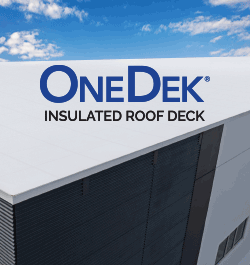











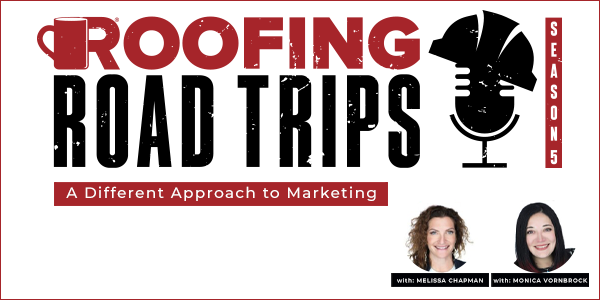
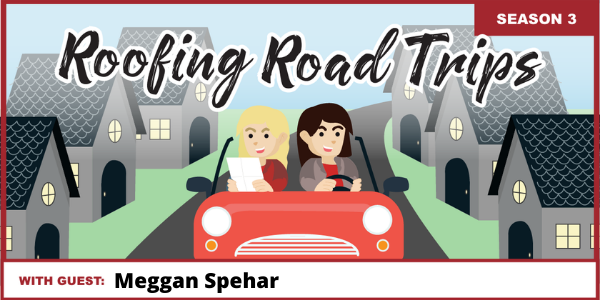
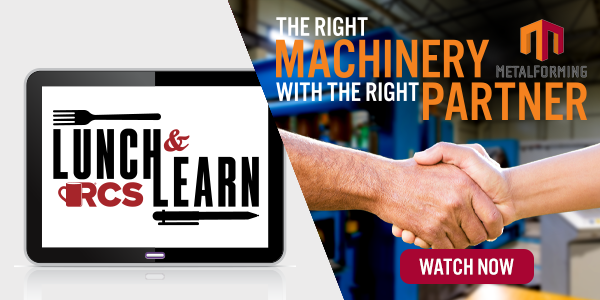
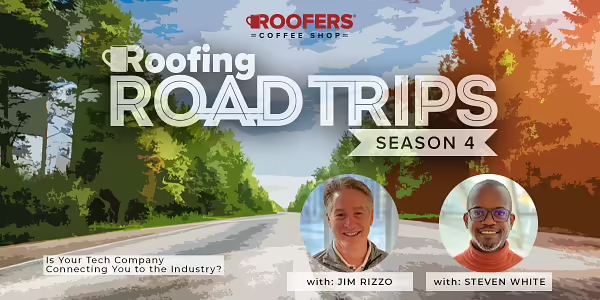




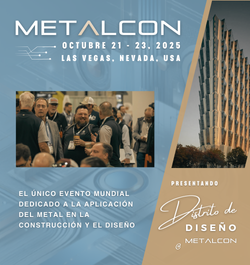

Comments
Leave a Reply
Have an account? Login to leave a comment!
Sign In